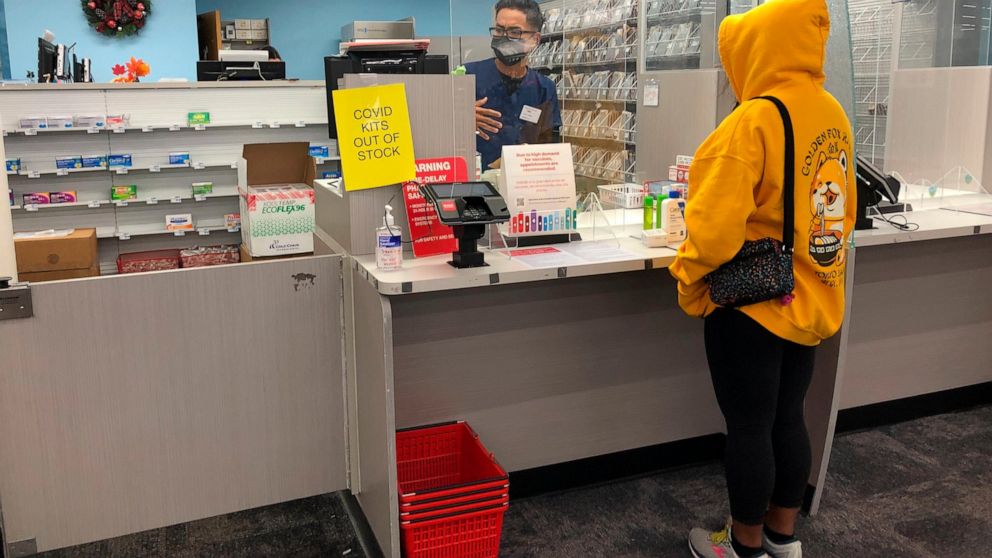COVID-19 vaccines, prescriptions fuel strong quarter at CVS
COVID-19 vaccines and the return of customers to stores helped push CVS Health well past fourth-quarter earnings expectations
COVID-19 vaccines and the return of customers to stores helped push CVS Health well past fourth-quarter earnings expectations.
But the pandemic’s unpredictability is making the drugstore chain and pharmacy benefit manager cautious. It did not raise a 2022 forecast it laid out in December, and its shares slid on Wednesday.
Vaccines that boosted fourth quarter sales could drop as much as 80% in the new year, and company executives expect a decline in in-store diagnostic testing as well. Plus they don’t know if there will be another surge in cases or another round of vaccine boosters in 2022.
COVID-19’s impact “remains one of the most challenging aspects of developing our guidance,” Chief Financial Officer Shawn Guertin told industry analysts Wednesday.
The pandemic’s impact was clear in the recently concluded fourth quarter, which saw CVS Health’s profit jump 34% to $1.31 billion compared with the final quarter of 2020.
The largest revenue generator for CVS, the pharmacy benefit management business, processed more pharmacy claims due partly to COVID-19 vaccinations and an increase in new prescriptions compared to the final quarter of 2020.
Vaccines had just started rolling out at the end of 2020, and many people were still staying home and trying to avoid the virus by staying away from doctor’s offices that generate those prescriptions.
The pharmacy benefit management business runs prescription drug plans for large employers and other big clients. CVS Health also saw the number of prescriptions filled in another key part of is business — drugstores — jump more than 11% in the final quarter of 2021.
The company also administered more than 20 million COVID-19 vaccines in the quarter, as customers sought boosters and eligibility expanded to children in the United States.
Demand for COVID-19 tests customers could buy over the counter, or without a prescription, also spiked in the fourth quarter as the omicron variant of the virus surged.
CVS Health sold 22 million of those tests last year, and 70% of those sales came in the fourth quarter, CEO Karen Lynch said.
CVS Health operates one of the nation’s largest drugstore chains with nearly 10,000 retail locations. It also sells health insurance through its Aetna business that provides coverage for more than 23 million people.
That segment saw revenue jump 8% as it added more customers with government-funded Medicare Advantage coverage. It also spent less on COVID-19 testing and treatment.
Overall, CVS Health Corp. posted adjusted earnings of $1.98 per share in the fourth quarter, as total revenue grew 10% to $76.6 billion.
Analysts expected earnings of $1.83 per share on $75.66 billion in revenue, according to FactSet.
CVS Health said in December that it expected adjusted earnings of $8.10 to $8.30 per share in 2022.
Analysts forecast, on average, earnings of $8.27 per share.
Shares of the Woonsocket, Rhode Island, company fell more than 4% to $105.53 while broader indexes climbed Wednesday.
The price of CVS Health shares has already climbed about 50% over the past year.
———
Follow Tom Murphy on Twitter: https://twitter.com/thpmurphy
![]()


